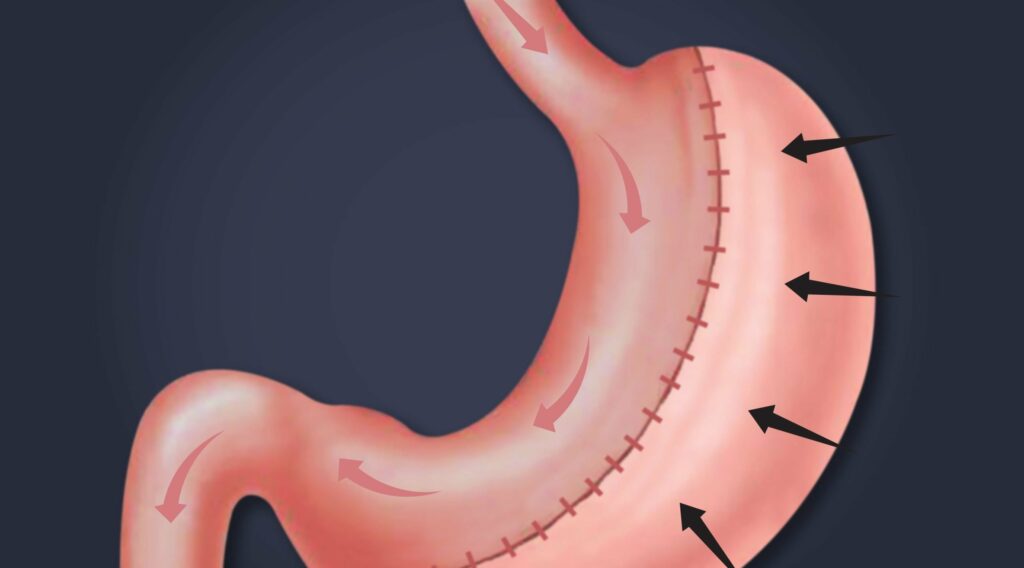Gastric sleeve surgery, or sleeve gastrectomy, is a transformative weight-loss procedure with a significant impact on your lifestyle. This article delves into the nuances of the recovery process, providing detailed insights to help you navigate this journey with confidence.

What is Gastric Sleeve Surgery?
Gastric sleeve surgery involves surgically removing about 80% of the stomach, leaving a tube-like structure. This reduces the stomach’s capacity, limiting food intake and helping you feel full sooner. It also impacts the hormones related to hunger and satiety, aiding in long-term weight management. Understanding this procedure is crucial for realistic expectations about the recovery and lifestyle changes post-surgery.
Immediate Post-Surgery: The First 24 Hours
Immediately after surgery, you’ll be in a recovery room under close observation. Pain and discomfort are common, managed through prescribed medications. You’ll be encouraged to walk to prevent blood clots and promote healing. Hydration is crucial, but you’ll be restricted to sips of water or ice chips initially to allow your new stomach structure to heal.
Short-Term Recovery: The First Week
The first week is crucial for healing. You may experience fatigue, abdominal pain, and nausea, which are normal parts of the recovery. Nutrition will be limited to clear liquids, gradually transitioning to thicker liquids like broths and pureed foods. It’s essential to follow your surgeon’s dietary guidelines strictly to avoid complications and ensure proper healing.
Lorem ipsum dolor sit amet, consectetur adipiscing elit. Ut elit tellus, luctus nec ullamcorper mattis, pulvinar dapibus leo.

Dietary Adjustments and Nutrition
As your stomach heals, you’ll move through several dietary phases. Starting with clear liquids, you’ll gradually introduce pureed foods, then soft foods, and finally, regular, but healthier foods. This transition can take several weeks. A dietitian will guide you on portion sizes, nutritional balance, and meal planning to ensure you get the necessary nutrients in your reduced-calorie diet.

Long-Term Recovery: The First Year and Beyond
The first year after surgery is a period of significant weight loss and lifestyle adjustments. Regular follow-ups with your healthcare team are crucial to monitor your health, nutritional status, and weight loss progress. You’ll learn to adjust your eating habits, focusing on small, nutrient-dense meals and avoiding high-calorie, low-nutrient foods.
Physical Activity and Exercise Post-Surgery
Physical activity is an integral part of recovery and long-term weight management. Initially, you should engage in light activities like walking. Gradually, as your body heals and you gain more energy, you can incorporate more vigorous exercises. Regular physical activity not only aids in weight loss but also improves overall health.
Common Questions and Answers
- Q: How much pain will I experience post-surgery?
- A: Pain varies but is generally manageable with medications. It should decrease significantly within a week.
- Q: How quickly will I lose weight?
- A: Most rapid weight loss occurs in the first six months post-surgery. The rate of weight loss will gradually decrease as you approach a year.
- Q: Can I return to my normal diet eventually?
- A: While you can eventually eat most foods, portion control and healthy choices are vital for maintaining weight loss.
Emotional Well-being and Mental Health
Adjusting to your new body and lifestyle can be emotionally challenging. Feelings of anxiety or depression are not uncommon. Seeking support from mental health professionals, support groups, or therapy can be highly beneficial in navigating these emotional changes.
Complications and How to Handle Them
While gastric sleeve surgery is generally safe, like any surgery, it can have complications. These may include acid reflux, nutritional deficiencies, or issues with the surgical site. Regular check-ups and following your surgeon’s advice are critical for early detection and management of any complications.
Life After Recovery: Maintaining Your New Lifestyle
Maintaining weight loss requires a long-term commitment to a healthy lifestyle. This includes adhering to a balanced diet, regular physical activity, and ongoing mental health support. The journey is not just about losing weight but about embracing a healthier, more active lifestyle for lifelong well-being.
Conclusion: Recovery from gastric sleeve surgery is a complex and deeply personal journey. It demands commitment, patience, and a positive mindset. By understanding what lies ahead, you can prepare yourself for the changes and challenges, making the journey towards a healthier you as smooth as possible.


